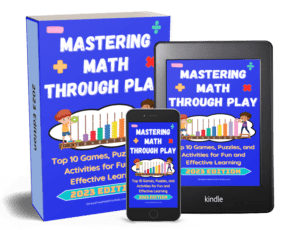Helping Your Perfectionistic Child in Math
Quora user Chris Thompson asks “Is math the pursuit of absolute perfection? You might say that. Or you might say that it is a pursuit of absolutes.”
Meanwhile, one of my favorite mathematically gifted tutoring students Cameron told me when he was in 4th grade, “Math hasn’t been proven to be consistent but it has been proven debatable.”

Do you have a child who leans toward the math perfectionist side? My book Helping Your Perfectionistic Child not only gives you 10 proven strategies for helping your child with perfectionism in general but has a whole section of 6 additional strategies specifically for math.

Here is a list of the math strategies that are detailed in the book.
Strategy 1
Use a whiteboard.
One of the key ideas from Building Thinking Classrooms is for students to use non permanent vertical surfaces Basically, use a whiteboard attached vertically to the wall! While some of the reasons to do this in the classroom include increasing collaboration and easy visual teacher assessment, there are reasons for perfectionist students to do this at home as well. Using the whiteboard has been proven to decrease fear of making mistakes. This increases the willingness of students to take risks.
Using different colors is also a great right brain strategy for math that can be easily accomplished on the whiteboard.
Here’s a great article called The Transformative Power of Whiteboards. It gives you 8 ways your child (or you) can use a whiteboard.
Strategy 2
Use graph paper to replace blank scratch paper.
This provides a more organized way to show your thinking and to prevent mistakes.
When you place one number in each box it is easy to line up your place value. It is easier to read the numbers and there is a spot for each number.(It also helps some children to use a different colored pencil for each place value.)
Strategy 3
Teach your child to break larger problems down into steps and check each step as they go.
There’s not much worse for a perfectionist child than working all the way through a long or multistep problem and then realizing they made a minor error at the beginning. If you are adding a long list of numbers, add them 2 or 3 at a time and check as you go. On a word problem with several steps this can save a lot of frustration.
Strategy 4
Play lots of low stress math games
I have a great list of them here!
Strategy 5
Provide math manipulatives and let your child freely explore or play. People often think of manipulatives as only being for struggling students, but I have seen highly gifted students discover formulas for themselves while using them.
Strategy 6
Read books about mathematicians to develop a growth mindset.
Bonus: For a somewhat humorous but also helpful look at his own perfectionism by an adult mathematician, read A Pretty Good Mathematical Model of Perfectionism
Do you have a favorite strategy for helping your perfectionistic child in math? Please add it to the comments!



